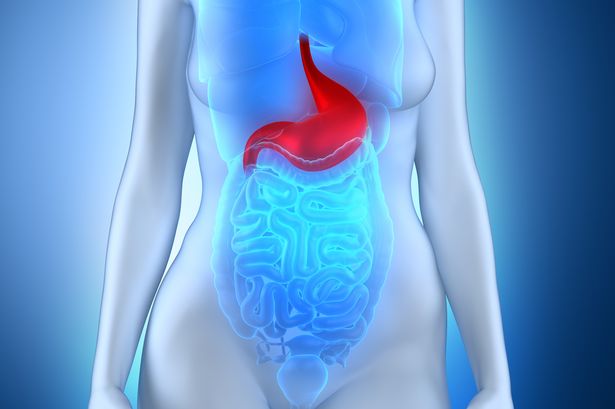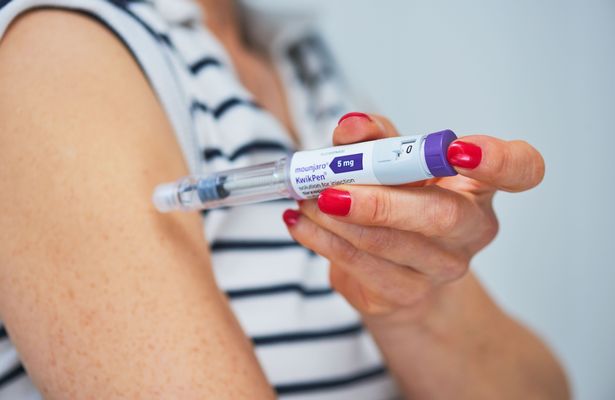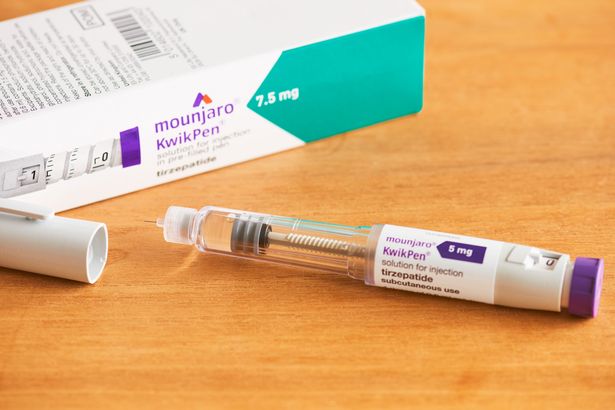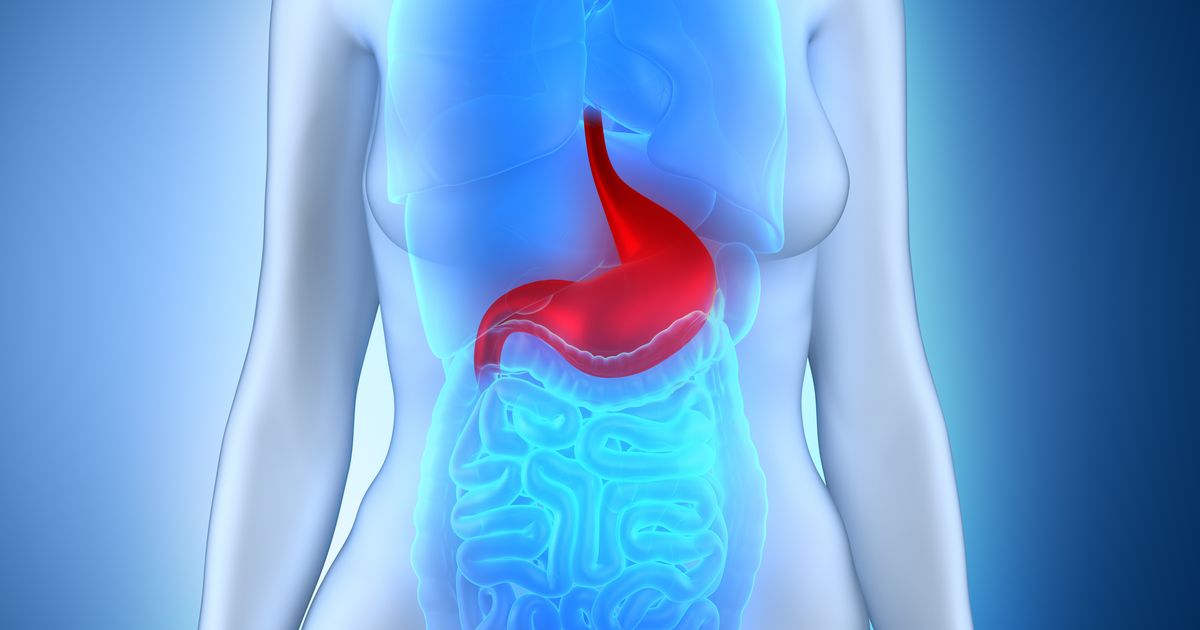The ‘life-altering’ side effects can be ‘relentless’, according to the health professional. Gastroparesis is a rare but severe side effect of weight loss medication(Image: janulla)
Gastroparesis is a rare but severe side effect of weight loss medication(Image: janulla)
A pharmacist has said she would never take weight loss jabs due to their ‘alarming’ side effects. Mounjaro began rolling out on the NHS earlier this year, and by the end of summer, around 1.5million people in the UK were using weight loss drugs- whether through the NHS or by other means.
But Deborah Grayson, who runs Digestion with Confidence, is concerned about the side effects and lasting consequences of taking jabs like Wegovy and Mounjaro. She deemed some of these side effects to be ‘life-altering’ and ‘relentless’, reports the Mirror.
She said: “I’m seeing and hearing about a rise in patients suffering from serious, long-lasting gut issues caused by the very weight-loss injections that are supposed to help them. These conditions are life changing.
“GLP-1 receptor agonists work by slowing the stomach to make people feel full faster. That’s why they’re so effective for weight loss, but for some, this effect can become a curse.
“The condition I’m seeing more of is called gastroparesis – delayed gastric emptying – where the stomach can no longer move food along at a normal rate. Symptoms are relentless: people feel full after tiny amounts of food, experience nausea or vomiting, bloating, stomach pain and heartburn.
 Mounjaro began rolling out on the NHS earlier this year(Image: Peter Dazeley via Getty Images)
Mounjaro began rolling out on the NHS earlier this year(Image: Peter Dazeley via Getty Images)
“While delayed gastric emptying is listed as an uncommon side effect (affecting one in 100 to one in 1000 patients), on the manufacturer’s data sheet for weight loss medication, permanent gastroparesis is not listed.
“What’s alarming is that, although we’ve always thought these issues would resolve when the injections are stopped, now we are discovering that this isn’t always the case, leaving many patients with permanent symptoms.
“This is not just uncomfortable; it’s life-altering. Eating becomes stressful, nutritional intake drops and in severe cases malnutrition can occur. Daily life – even enjoying a family meal – can turn into a constant battle against nausea and pain.”
Mounjaro’s manufacturer Eli Lilly and Company‘s official website does state that: “Mounjaro is not recommended in patients with severe gastroparesis.”
And in medical trials of the jab, “severe gastrointestinal adverse reactions occurred more frequently among patients receiving Mounjaro” than those who were receiving a placebo.
Only 14 per 100,000 people are diagnosed with gastroparesis in the UK, and while it affects people of all ages, women are twice as likely to suffer from it, according to the charity Guts UK.
The condition is also most often diagnosed in people aged 18 to 39.
The NHS urges sufferers to see a GP when they feel symptoms including feeling full quickly after eating, experiencing nausea or vomiting after eating, chronic stomach pain, constant heartburn for three weeks or more and bloating for three weeks or more, which could be signs of the condition.
 The pharmacist is warning people of the side effects of weight loss jabs(Image: Peter Dazeley via Getty Images)
The pharmacist is warning people of the side effects of weight loss jabs(Image: Peter Dazeley via Getty Images)
Ms Grayson added: “What concerns me further is that these gut symptoms often lead to increased prescriptions of acid-reducing medications like proton pump inhibitors. These are one of the most prescribed medications in the UK, and long-term use has been linked to a number of conditions including dementia.
“Patients taking GLP-1s see their GPs complaining of heartburn or reflux-like discomfort, and the obvious response is to treat it with a PPI. While this can relieve some of the acid-related discomfort, it doesn’t address the underlying problem, which is delayed gastric emptying.
“In fact, taking PPI medication for gastroparesis can sometimes worsen symptoms rather than help, as it doesn’t address the underlying delayed stomach emptying and may contribute to further digestive issues. With GLP-1 medications being prescribed at higher doses to maximise weight loss, I predict we’ll see more people experiencing both persistent gastroparesis and reliance on PPIs.
“The irony is that a treatment intended to improve health can indirectly cause long-term gastrointestinal complications and additional medication use.”
NHS advice for managing a gastroparesis diagnosis includes switching to four to six small meals a day, reducing the amount of indigestible insoluble fibre (found in wholegrain bread, beans and some vegetables and fruit) in your diet, and going on a liquid diet, eating soups or meals blended in a food processor.
Ms Grayson said: “I would urge patients and healthcare professionals to take this seriously. Anyone starting these injections should be fully aware of the potential for severe and, in some cases, permanent digestive issues.
“Doctors need to monitor symptoms closely and consider alternatives for people with a history of gastrointestinal problems. Patients experiencing persistent nausea, vomiting, bloating or early satiety should speak to their GP immediately.”
 Join the Daily Record WhatsApp community!
Join the Daily Record WhatsApp community!
Get the latest news sent straight to your messages by joining our WhatsApp community today.
You’ll receive daily updates on breaking news as well as the top headlines across Scotland.
No one will be able to see who is signed up and no one can send messages except the Daily Record team.
All you have to do is click here if you’re on mobile, select ‘Join Community’ and you’re in!
If you’re on a desktop, simply scan the QR code above with your phone and click ‘Join Community’.
We also treat our community members to special offers, promotions, and adverts from us and our partners. If you don’t like our community, you can check out any time you like.
To leave our community click on the name at the top of your screen and choose ‘exit group’.
If you’re curious, you can read our Privacy Notice.

